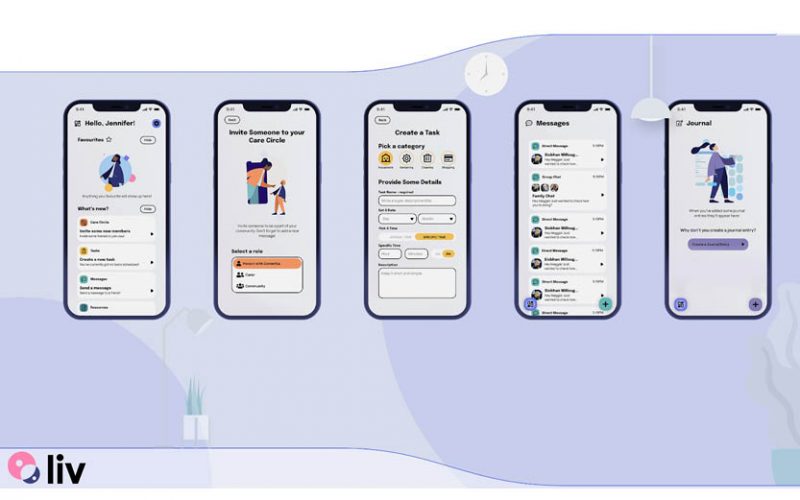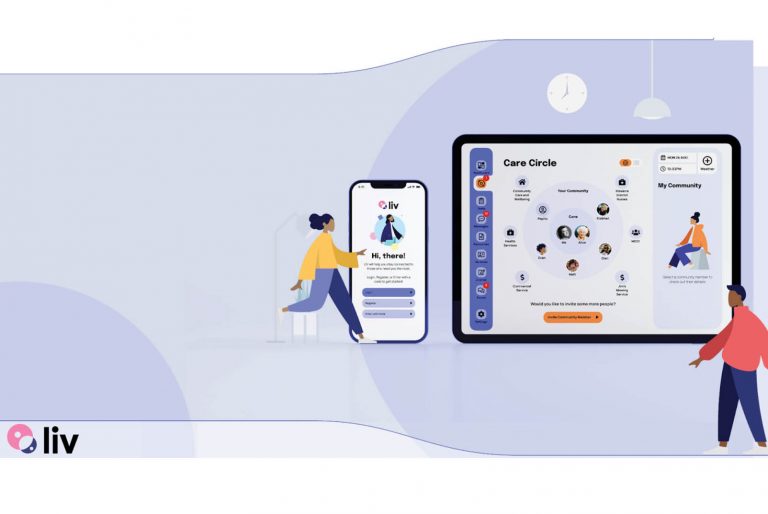In 2021, it is estimated that almost 1.6 million people in Australia were involved in the care of someone living with dementia, and approximately 70% of people with1 dementia live in their community2.
As part of a government initiative to make it easier for people to live independently at home longer, Miroma Project Factory, working closely with Northern Sydney Dementia Collaboration, Northern Beaches Community Care, Multicultural Communities of the Illawarra and a range of both people living with dementia and their carers, has developed LIV well with dementia to improve the lives of people living with this condition and their carers, with the aim to keep them living longer, independently, in their own homes by making it easy to access supportive communities, information and services.
Government services and policy commonly focus on the health and care of people with dementia. While these are essential in addressing the health needs of those with dementia, the condition often impacts their day-to-day life and that of their carer, diminishing their ability to participate and enjoy things like work, tasks around the house, grocery shopping or participating in hobbies, decreasing their social interaction and increasing their isolation.
While we know that being part of a community makes life easier and more fulfilling, asking that community for help can be difficult – you don’t want to put pressure on them and you certainly don’t want to appear unable to cope. LIV makes it easy to reach out for help with simple tasks, while keeping you in control – whether it’s help clearing out a spare room, mowing the lawns or just sitting with someone while you head out to an appointment – LIV can help. Through LIV, it’s also easy to find the support services you need locally, to get advice from others in a similar situation, or even just keep people up to date with your activities.
 LIV helps people living with dementia to stay at home longer by providing information, resources, local services, social connections and a way to keep in touch – or reach out – to friends and family.
LIV helps people living with dementia to stay at home longer by providing information, resources, local services, social connections and a way to keep in touch – or reach out – to friends and family.
Dr Dana Bradford, Australian eHealth Research Centre at CSIRO says “This is exactly what people living with dementia have been asking for.”
Features include:
- Local services: a list of relevant and useful community, health and commercial services that make it easy to find the help required.
- Forums: peer-based group of people like you, who can offer support, tips and tricks, a listening ear or just validation for what you are going through.
- Resources: information relevant to living with dementia and those caring for someone.
- Community of care: LIV lets a person living with dementia or a carer invite friends, family and local community members to join them in a private social network.
The app links friends, family members and local community with a person living with dementia (or another life limiting condition) and their carer, in one central place – a community of care. Through this care circle, people can offer, ask for and receive the support they need.
“We know that people living with dementia and their carers are proud, capable people. But even the best of us can do with a hand every now and then. LIV aims to make it easy to get the help you need – whether this is information, community resources, advice from someone in who’s been in your situation, a hand around the house or just someone to spend time with – in a easy, centralised, accessible manner” said Jennifer Wilson, one of the designers of the app.
LIV is available to download on the Apple App and Google Play stores now.
1 Based on Dementia Australia’s analysis of the following publications – M.Kostas et al. (2017) National Aged Care Workforce Census and Survey – The Aged Care Workforce, 2016, Department of Health; Dementia Australia (2018) Dementia Prevalence Data 2018–2058, commissioned research undertaken by NATSEM, University of Canberra; Alzheimer’s Disease International and Karolinska Institute (2018), Global estimates of informal care, Alzheimer’s Disease International; Access Economics (2010) Caring Places: planning for aged care and dementia 2010–2050.
2 Australian Institute of Health and Welfare (2012) Dementia in Australia.




